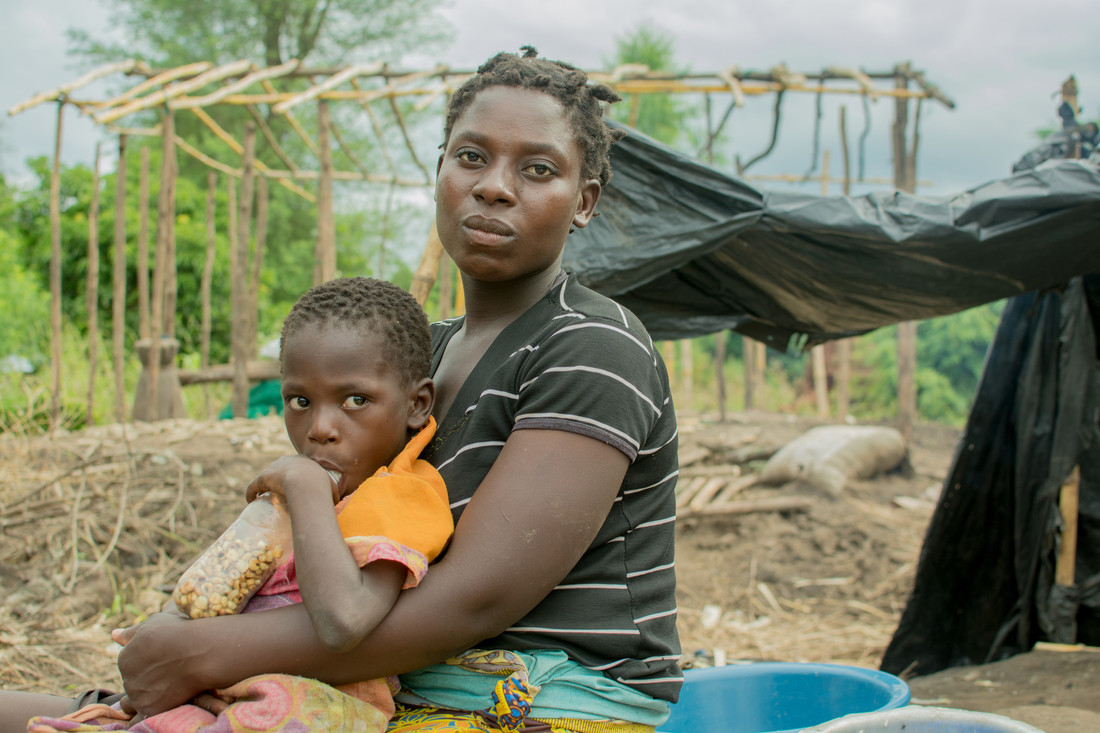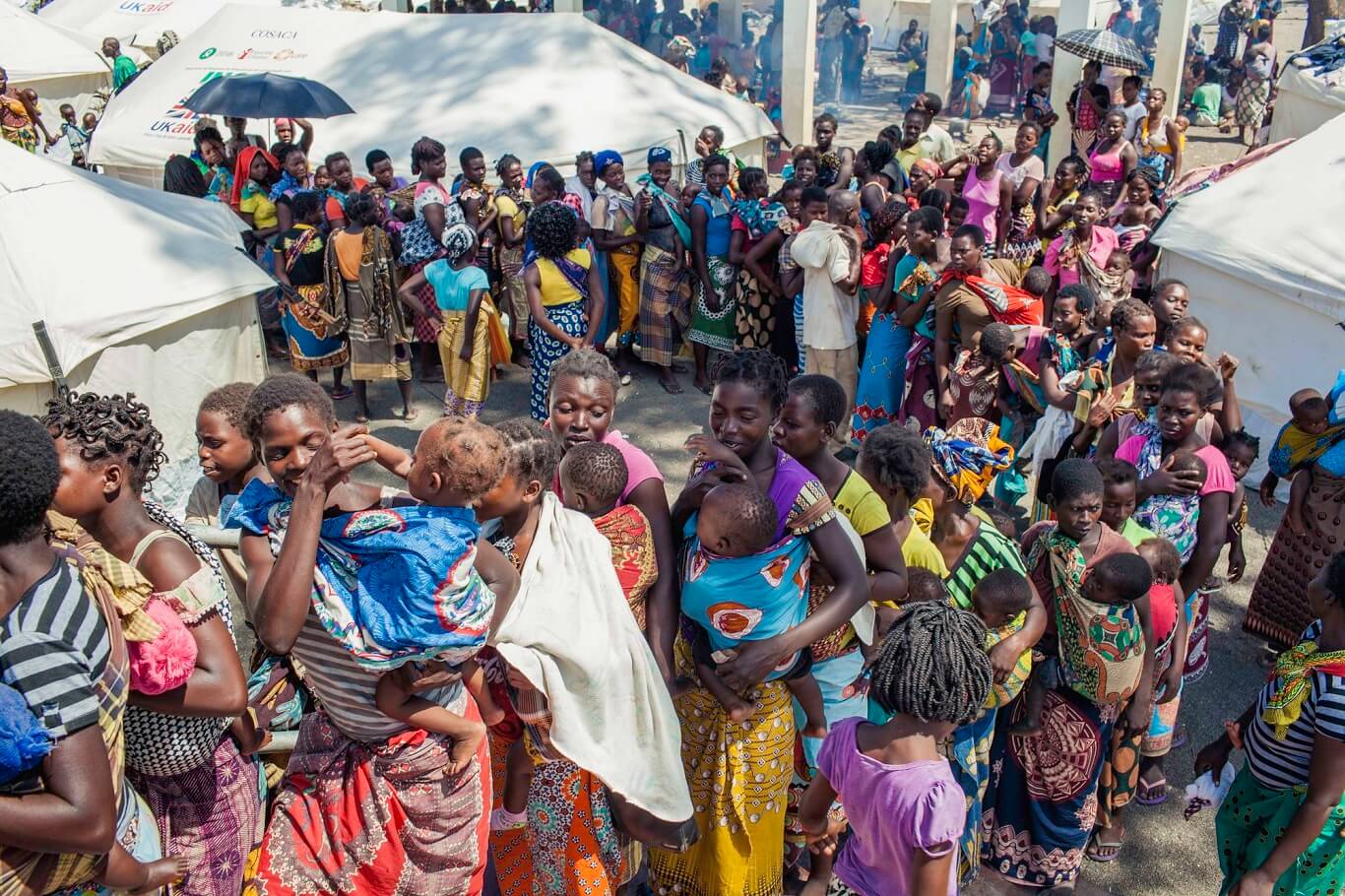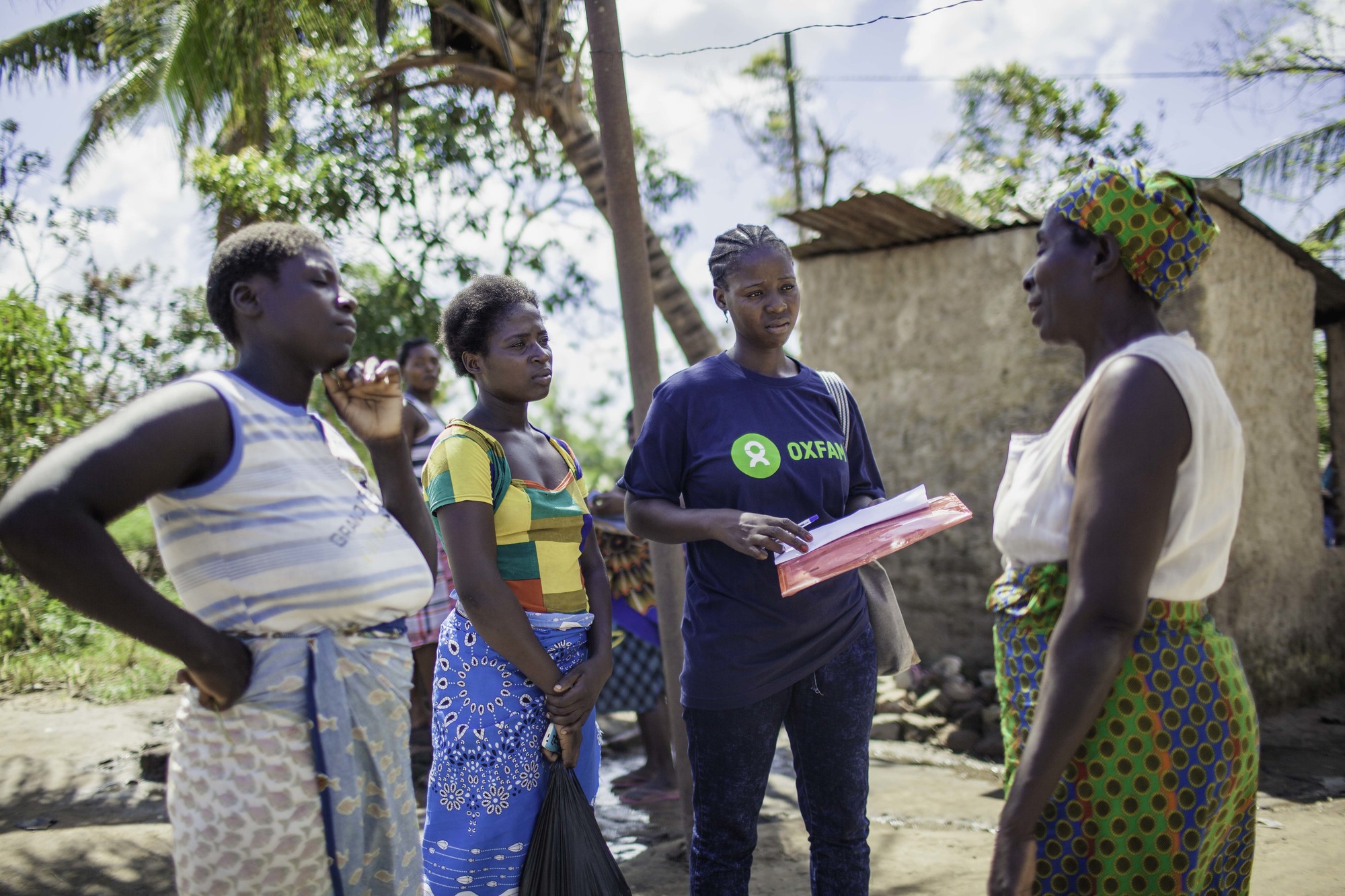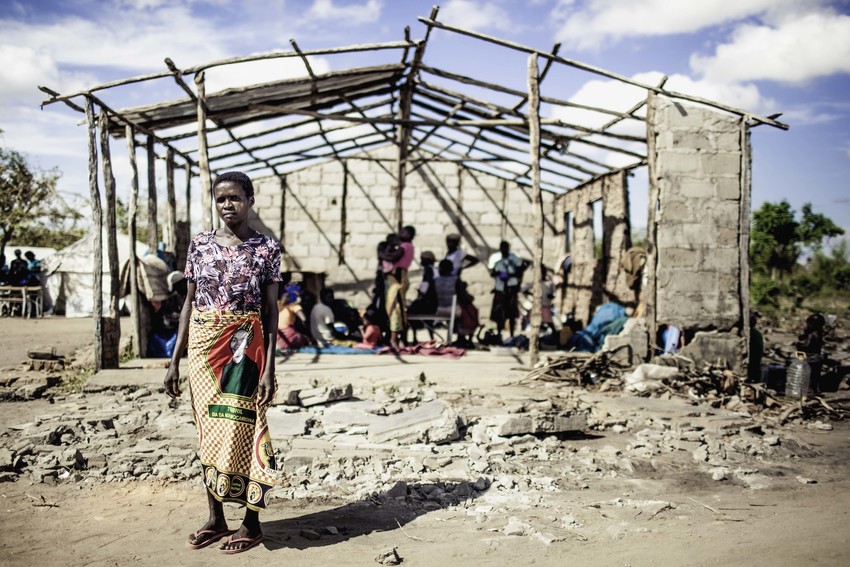Five things to know about Cyclone Idai in Mozambique, Malawi and Zimbabwe
Five things to know about Cyclone Idai in Mozambique, Malawi and Zimbabwe
Cyclone Idai has caused widespread flooding, landslides and destruction and left communities in Mozambique, Zimbabwe and Malawi in urgent need of life-saving humanitarian assistance. The lives of more than 2.6 million people have been affected since Cyclone Idai hit landfall on the night of March 14, 2019.
Just six weeks later, a second cyclone, Cyclone Kenneth, brought torrential rains to northern Mozambique, causing flash floods, burst rivers, potential landslides and storm surges, putting another 160,000 people at risk and killing at least 9 people. This second large-scale disaster is another massive blow to the country.
Here are five things you need to know right now.
1. Cyclone Idai could become one of the worst weather-related disasters ever to hit the southern hemisphere
More than a thousand people are feared to have died, thousands more are missing and millions of people have been left destitute without food or basic services.
The Presidents of Zimbabwe, Malawi and Mozambique have declared national disasters and international concern remains high with the UN Secretary General declaring this "one of the worst weather related catastrophes in the history of Africa”.
The Cyclone has caused extensive damage to homes and completely wiped out agricultural land in many areas of all three countries. Already poor communities will struggle to survive and rebuilding efforts will be very difficult.

Maria Nazombe say they have no home, they have no food and behind is a house they would like to rebuild but they do not have plastic sheets and grass to finish it.
2. It’s a race against time
Cholera and other waterborne diseases are a major hazard for the survivors of Cyclone Idai and Cyclone Kenneth. Areas where thousands of people are living in temporary shelters in open spaces could become potential disease hotspots if not adequately supported.
Oxfam teams and local partner organizations are already on the ground in all three countries, responding with clean water, water purification, toilet facilities, shelter, clothing, food and other essential items. We are running hygiene and vaccination programs to stop the spread of Cholera. In some of the most challenging conditions imaginable, Oxfam is working around the clock to make sure this vital work happens as quickly and effectively as possible. It is a race against time to save lives.

Women are lining up for a food distribution in the IDP camp in Tica. Cyclone Idai.
3. Disasters like this hit women the hardest
In every disaster and conflict the poorest people are most vulnerable and hit hardest. This is specifically true for women. Approximately 75,000 women affected by the cyclone are pregnant.
When food and essential supplies are scarce, women often eat last or sacrifice their share for the family. This is sometimes of their own accord, but more often due to societal expectations. These same gender expectations put the responsibility of lining up to receive food aid and walking long distances to find clean water on women. They also bear the burden of most of the family care and domestic work.
In the chaos and aftermath of a crisis, violence against women becomes an even bigger threat. Rape, trafficking, early marriage and other forms of violence against women increase. In fact, the UN has reported that one in five refugees or displaced women in complex humanitarian settings are estimated to have experienced sexual violence.
Oxfam’s humanitarian response work puts the unique needs of women and girls at the heart, without losing sight of the urgent needs of all people. With Cyclone Idai, Oxfam immediately began conducting a gender analysis to inform our response to the disaster. Our water and sanitation response includes women and men in the decision making for appropriate location of bathing points and latrines, lightning and the upkeep of the surrounding areas. Determining the safety, protection and listening to what women say they need the most is a primary focus.

Oxfam Volunteer Julia is doing hygiene promotion and cholera
4. We’re working with the Humanitarian Coalition and the international aid community
Oxfam has joined with other humanitarian aid agencies working on the ground in Mozambique, Zimbabwe and Malawi to ensure efficient relief efforts. Our membership of the Humanitarian Coalition means that together we are coordinating our response, generating public awareness and raising funds so we can reach more people with much needed aid. Thanks to the Canadian Government, every dollar donated to the Humanitarian Coalition and member agencies, including Oxfam Canada, was doubled until April 14th.
You can help save lives by donating to Oxfam’s Cyclone Idai appeal now.
5. A longer-term response will take some time
With an estimated 2.6 million people affected across the region, Oxfam and partners are focused on immediate needs by providing emergency kits with blankets, sleeping mats, mosquito nets to protect from malaria, buckets for storing water, and canvas and ropes to build shelters. We are using mobile water treatment plants to provide clean water and emergency toilets on a huge scale. Cash grants are being used so people can buy the food they need and begin re-establishing their lives.
Soon rebuilding will begin in communities hit by this cyclone. Oxfam is already part of a program to restore several basic social services including access to healthcare, education and long-term water resources. In Malawi, thousands of people who were already struggling with drought and poor crops are now even more destitute.
Disasters don’t affect everyone equally. Often it is the poorest and most vulnerable people who get left behind and suffer the most. In cities like Beira, Mozambique, the poorest people live in flimsy tin shacks and in areas more susceptible to floods; richer people have houses with concrete walls, stronger roofs and on higher ground. Poverty intersects with race, gender and with ethnicity to create greater vulnerability.

Madelema finds shade in a transition centre in Guara Guara, Mozambique following Cyclone Idai. Madelema is a single parent of two children and is the sole provider for her family. She told Oxfam “I spent 3 days in the water. We went back to see what we could save from our house. We could save nothing. We had to climb on the roof. I had each child in my arms, trying to save them.”
Oxfam is working to ensure that inequality isn’t exacerbated because of this disaster. We are working with other agencies to assess, prioritize and access people who are poorest and most vulnerable in our responses, specifically women. And we’ll continue to lobby governments, not only for more aid and resources, but also for good public policies like universal social protection and universal health coverage to help countries and communities build back stronger.

